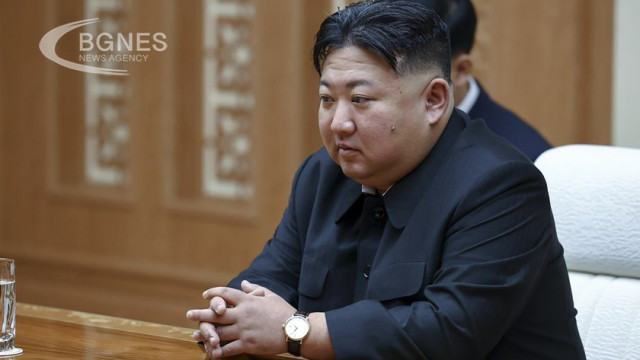The warning comes from Kim Jong Un, the supreme leader of North Korea, who begins 2024 with a military perspective, the Albanian Post reported.
Kim has ordered his military to be ready to destroy South Korea and the United States if a military confrontation begins.
The year that has just begun does not bode well for the Korean peninsula, especially for relations between Pyongyang and Seoul, which have already deteriorated in recent years. Kim's sharp rhetoric comes at the end of the traditional Workers' Party summit.
The most significant political passage of the Supreme Leader's speech was the one in which he described the search for reunification as a "mistake", thereby admitting that he made a mistake between 2018 and 2019 when he accepted the resumption of dialogue with the administration of then-President Moon Jae-in, a Democrat.
"I think it's a mistake we should no longer make, considering the people we consider our worst enemies to be someone with whom we should seek unification and reconciliation," Kim said.
Pyongyang then confirmed the resumption of all military operations near the border, halted following a 2018 military accord that was abrogated by Seoul, following the recent launch of North Korea's first spy satellite.
According to the propaganda, which has not yet been confirmed by South Korean and US intelligence, the first satellite is already capable of collecting images and information from the important US military base in Guam, in the Pacific Ocean.
What worries South Korea the most is Russia's direct involvement. According to Seoul's secret services, the September summit between Kim and Vladimir Putin in the Russian Far East led to a crucial breakthrough in Pyongyang's satellite plan.
North Korea reportedly handed Russia the project and data from two previous failed launches. Moscow was supposed to analyze them and make the necessary proposals for the launch. In exchange for military aid for the war in Ukraine.
Tensions between the two Koreas are at their highest level in decades. A deterioration that began in the spring of 2020, when Kim blew up the inter-Korean communications center in Kaesong, a few kilometers from the demilitarized zone.
In 2022, ballistic missile launches from Pyongyang increased dramatically, especially after South Korea's presidential election brought to power the conservative Yoon Suk-yeol, who has a much more uncompromising stance toward the North Korean regime than his predecessor.
The war in Ukraine further worsened the situation. Fears of Kim's growing rapprochement with Russia have prompted South Korea to dramatically strengthen its military alliance with the US. Not only that, Yun even dropped his demands for reparations from Japan for abuses during colonial rule, preferring a historic merger with Tokyo after a long trade and diplomatic war.
The Camp David summit in August last year, with the participation of Japanese Prime Minister Fumio Kishida and US President Joe Biden, sealed a new era of the tripartite alliance.
This event led Pyongyang to perceive the actions of the three hostile countries as a threat to its national security, as well as all the joint exercises developed in recent months at the bilateral and trilateral levels.
China, which has traditionally often played the role of mediator or in any case "controller" over North Korea, has the opportunity to exert more influence on Kim.
Xi Jinping also sees the growing US presence in waters east of Beijing as a threat, and to mediate with Pyongyang, he has urged Tokyo and Seoul not to be "guided" by Washington.
In this complex scenario, three other steps that could characterize 2024 on the Korean Peninsula should be addressed.
First: South Korea's parliamentary elections in April, could make it even more difficult for Yun.
Second: Kishida's difficulties in Japan after a party-funding scandal forced him to carry out a major reorganization of the government. Two elements that can somewhat balance the line adopted by Seoul and Tokyo.
Third: Putin's possible historic visit to Pyongyang, which would seal the rapprochement between Russia and North Korea. /BGNES







